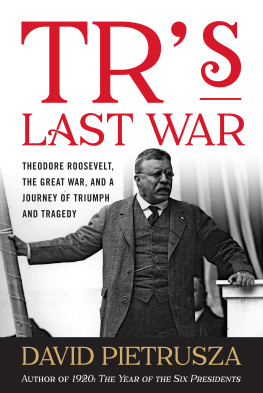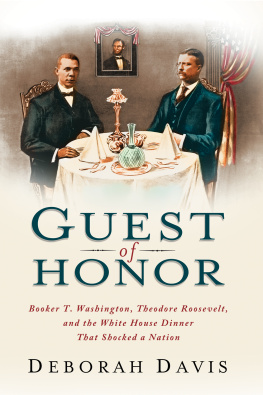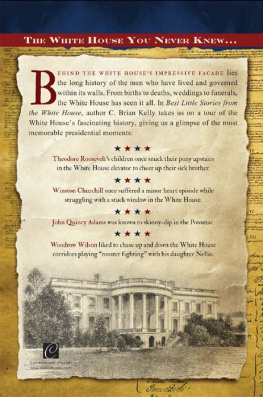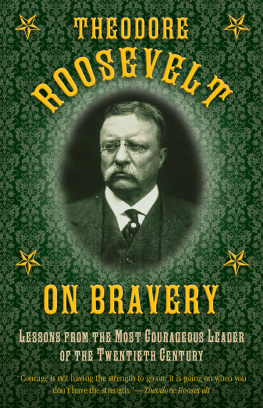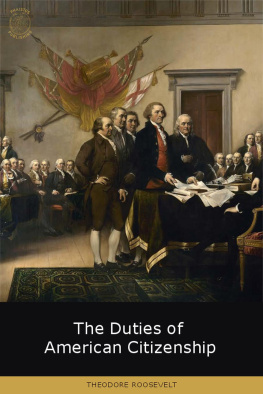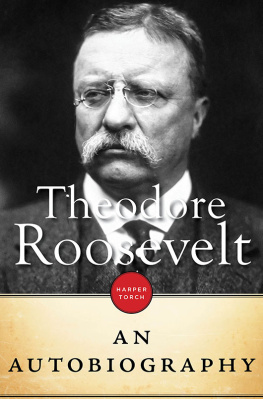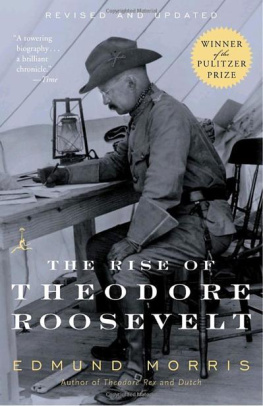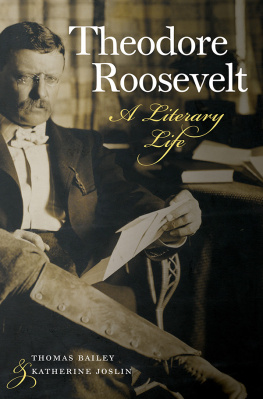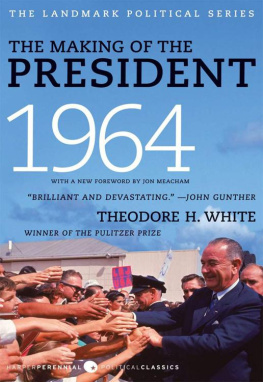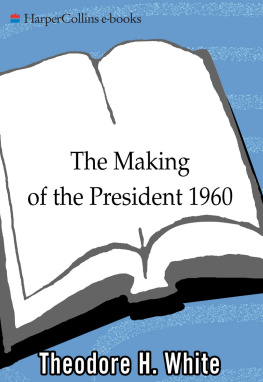Patricia OToole
When Trumpets Call
THEODORE
ROOSEVELT
AFTER THE
WHITE HOUSE
Simon & Schuster
New York London Toronto Sydney

BY THE SAME AUTHOR
Money and Morals in America: A History
The Five of Hearts: An Intimate Portrait of Henry Adams and His Friends, 1880-1918
Corporate Messiah: The Hiring and Firing of Million Dollar Managers

SIMON & SCHUSTER
Rockefeller Center
1230 Avenue of the Americas
New York, NY 10020
Copyright 2005 by Patricia OToole
All rights reserved,including the right of reproductionin whole or in part in any form.
SIMON & S CHUSTER and colophon are registered trademarks of Simon & Schuster, Inc.
For information about special discounts for bulk purchases,please contact Simon & Schuster Special Sales at 1-800-456-6798 or business@simonandschuster.com
Designed by Karolina Harris
Maps 2004 Jeffrey L. Ward
Manufactured in the United States of America
1 2 3 4 5 6 7 8 9 10
Library of Congress Cataloging-in-Publication Data
OToole, Patricia.
When trumpets call : Theodore Roosevelt after the White House Patricia OToole.
p. cm.
Includes bibliographical references and index.
1. Roosevelt, Theodore, 1858-1919. 2. PresidentsUnited StatesBiography. 3. United StatesPolitics and government1909-1913. 4. United StatesPolitics and government1913-1921. I. Title.
E757.O77 2005
973.911092dc22 [B] 2004062590
ISBN-13: 978-0-684-86477-8
eISBN-13: 978-1-4165-3709-0
www.SimonandSchuster.com
PHOTO CREDITS
Theodore Roosevelt Collection, Harvard College Library: 1, 7, 8, 17, 18, 19, 21, 22, 25, 36, 37, 38, 39, 40, 42, 43. Library of Congress: 2, 3, 4, 9, 10, 11, 12, 13, 14, 15, 16, 20, 23, 24, 26, 29, 30,31, 33, 34, 35, 41. Duke University, Rare Book, Manuscript, and Special Collections Library: 5. Courtesy of Richard Derby Williams: 27, 28. Courtesy of the Emporia Gazette: 32.
To Thelma Jean Goodrich, a power unto herself
CONTENTS
PROLOGUE: Victory
Archival Sources
How dull it is to pause, to make an end, To rust unburnishd, not to shine in use! As tho to breathe were life.
Alfred, Lord Tennyson, Ulysses
When Trumpets Call
AUTHORS NOTE
THE IDEA of writing a book about Theodore Roosevelts life after the White House was a gift from the gods of experience and synchronicity.
While researching The Five of Hearts, a book about Henry Adams and his friends, I happened onto the fact that Roosevelt was only fifty when his presidency came to an end. Several years after finishing the book, as my own fiftieth birthday set off the usual reflections on things done and not done, I remembered Roosevelt. He had loved being president, and after nearly eight years of relishing the great power of his office, had been obliged by custom to give it up. What had that been like? I wondered. What had happened to this powerful man once his power was gone?
I recalled a safari, another run for the presidency, a trip down an uncharted river in Brazil, and hopes of taking soldiers to the front in World War I. Curious about the rest of the story, I read Joseph Gardners Departing Glory, a graceful rendering of the events of what proved to be Roosevelts last decade. He left office on March 4, 1909, and died on January 6, 1919. To find out more about how the loss of power shaped Roosevelts life, I read several birth-to-death biographies and a number of memoirs by his contemporaries. Nearly all of them touched on his frustrations out of power, but I soon realized that what had not been said would fill a book.
The gaps were understandable. The years after a president leaves office tend to be anticlimactic, so biographers rarely treat them at length. (Kathleen Daltons Theodore Roosevelt: A Strenuous Life is a splendid exception.) Also, Roosevelts correspondence is so quotable and so voluminous (an estimated 150,000 outgoing letters and even more coming in) that it is possible to chronicle this phase of his life without going beyond the letters he ex-changed with friends and family. I guessed that the letters Roosevelts associates wrote to one another about him would be equally telling. Times had changed but humans had not, so it stood to reason that Roosevelts friends, like the rest of us, would often share their concerns about a friend more freely among themselves than with the friend himself. My guess proved correct, and I benefited greatly from their thoughtsparticularly their reactions to the wrenching events of 1912, when he persuaded himself that the trumpets of patriotic duty were calling him to run for president.
Roosevelts sense of himself as a man summoned was intimately connected to his love of power. Power for him was not an end but an instrument for vanquishing the wicked and protecting the helpless, and the trumpets he heard rang in tones biblical as well as martial. From St. Pauls first letter to the Corinthians, Roosevelt had learned that no one would heed an uncertain trumpet, and while he was often faulted for blaring, it would never be said that his calls could not be heard. Asked during his last months in office to send a stirring word to a youth organization, he wrote, The trumpet call is the most inspiring of all sounds, because it summons men to spurn ease and self-indulgence and timidity, and bids them forth to the field where they must dare and do and die at need. He lived by that creed and hoped that when Death caught up with him, it would be on a battlefield.
In the reminiscences of those who fell under his spell, the trumpet is a recurring image. He sounded in my heart the first trumpet call of the new time that was to be, the journalist William Allen White wrote years after his first encounter with Roosevelt. He overcame me. And in the hour or two we spent that day he poured into my heart such visions, such ideals, such hopes, such a new attitude toward life and patriotism and the meaning of things, as I had never dreamed men had.
Like many powerful men who give themselves to public service rather than the pursuit of wealth, Roosevelt often mistook the sirens of personal ambition for the trumpets of public duty. He could easily admit that he enjoyed power but could not admit, perhaps could not even see, how much he needed power in order to feel fully engaged. Unanalyzed, unaccepted, and unmet, the need gave this former president a decade filled with imagined trumpet calls.
THE LIBRARY OF CONGRESS card catalogue lists more than six hundred books about Theodore Roosevelt, and as I surveyed this well-worked mine, I wondered how much new ore I might turn up. I am happy to report that my investigations yielded a number of discoveries. The most historically significant came from an unexpected source, the letters of Archie Butt. An army officer assigned to the White House from 1908 to 1912, Captain Butt was a constant companion of the president, and the letters he wrote about his experiences with Theodore Roosevelt and William Howard Taft have been a standard reference ever since their publication (one volume in 1924 and two more in 1930). After noticing the ellipses sprinkled across the pages of the first volume, I tracked down a microfilmed version of the originals and learned that Butts editor had censored a great deal in all three volumes. Chief among the omissions was a conversation between Captain Butt and Dr. James Marsh Jackson, a Boston physician who examined Taft in the summer of 1910. Alarmed by the precariousness of Tafts health, Jackson urged Butt to discourage the president from seeking reelection in 1912. The story, told in Chapter 5, still lacks one crucial fact: a definitive diagnosis.
Next page

